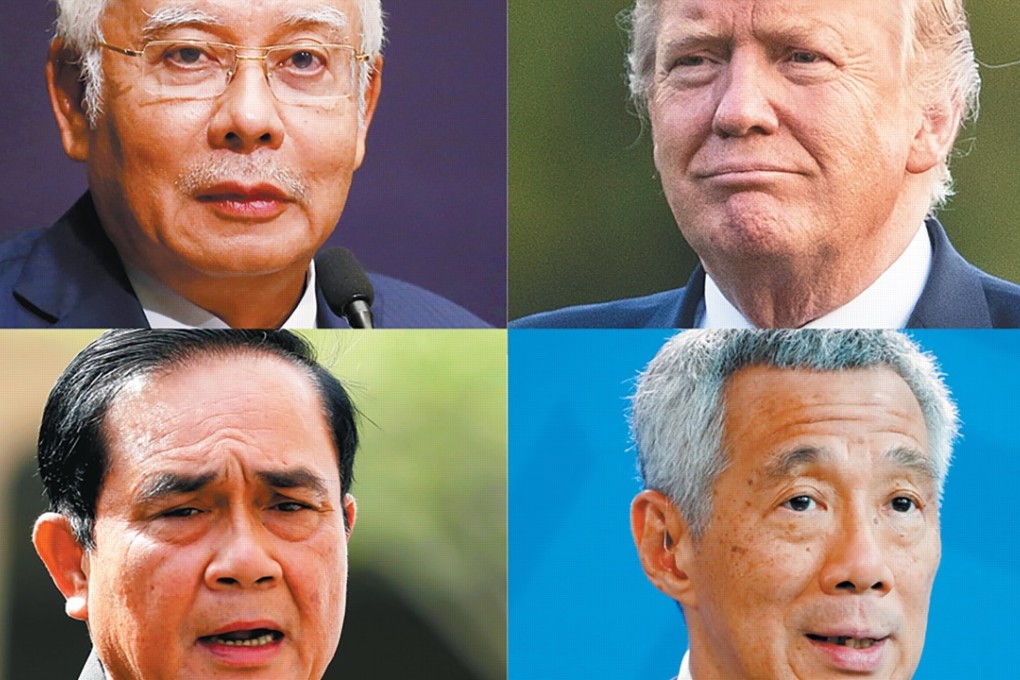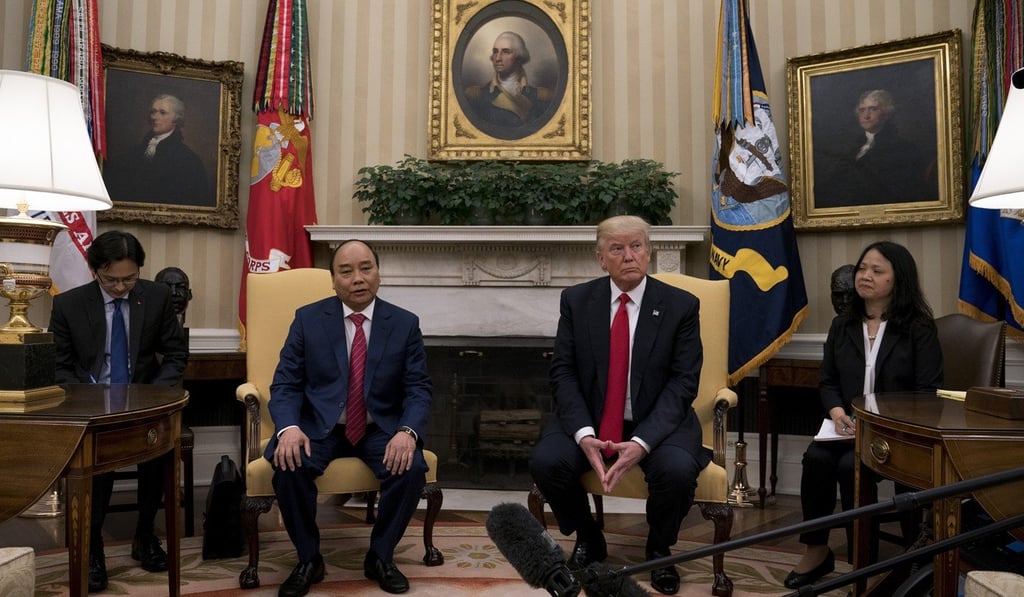Advertisement
Trade, China, scandal: what’s the agenda as Malaysia, Singapore leaders meet Trump?
Najib Razak, Lee Hsien Loong and Thailand’s Prayuth Chan-ocha are heading to the White House with a common goal
Reading Time:6 minutes
Why you can trust SCMP

The leaders of Malaysia, Singapore and Thailand have a uphill task in their upcoming White House visits if they are to redirect the gaze of a famously ‘America First’ president towards Southeast Asia.
With extreme weather, gridlock on Capitol Hill and a high stakes game of nuclear chicken with North Korea preoccupying President Donald Trump, the prime ministers of the three countries must pull out all the stops to achieve a unified objective: Convince the leader of the world’s largest economy to scale back his protectionist agenda, and keep the region firmly in his sights.
Malaysia’s Najib Razak, on a whistle-stop US tour, will take the first go when he meets Trump in the Oval Office on Tuesday.
Advertisement
Singapore’s Lee Hsien Loong and Thailand’s Prayuth Chan-ocha are due in Washington in October.
The meetings follow Vietnam premier Nguyen Xuan Phuc’s White House visit in May – the first by a Southeast Asian leader under the new US administration.
Advertisement

Foreign policy observers say the visits signify an emphatic push by the region to advance trade relations that blossomed during the administration of Barack Obama but are now under threat due to Trump’s antipathy over global free trade.
Advertisement
Select Voice
Choose your listening speed
Get through articles 2x faster
1.25x
250 WPM
Slow
Average
Fast
1.25x